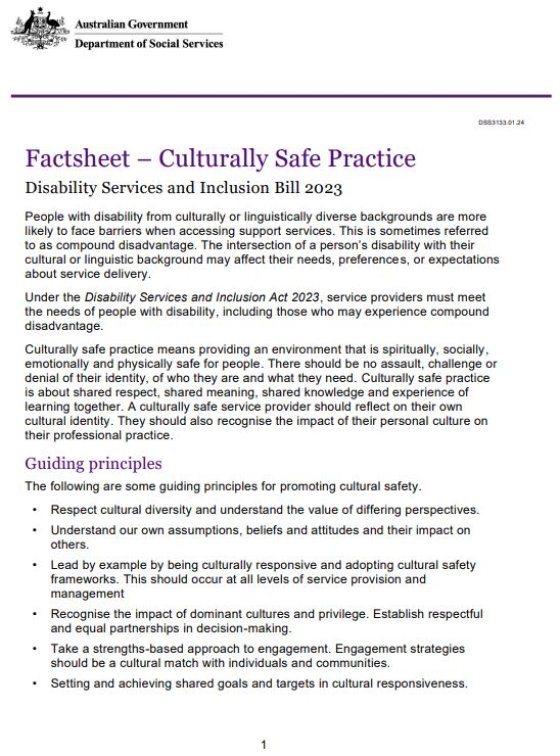About this resource
People with disability from culturally or linguistically diverse backgrounds are more likely to face barriers when accessing support services. This is sometimes referred to as compound disadvantage. The intersection of a person’s disability with their cultural or linguistic background may affect their needs, preferences, or expectations about service delivery.
Under the Disability Services and Inclusion Act 2023, service providers must meet the needs of people with disability, including those who may experience compound disadvantage.
Easy Read
Easy Read helps explain information in a more clear and simple way.
Auslan
Auslan or Australian Sign Language is the language used by the majority of the Australian d/Deaf community.
Resource details
Date published: 8 Oct 2024
Having trouble accessing?
We take care to provide accessible resources. If you need help to access or a different format, you may like to:
Visit our accessibility page
Get in contact
DSS2645 | Permalink: www.dss.gov.au/node/2645
